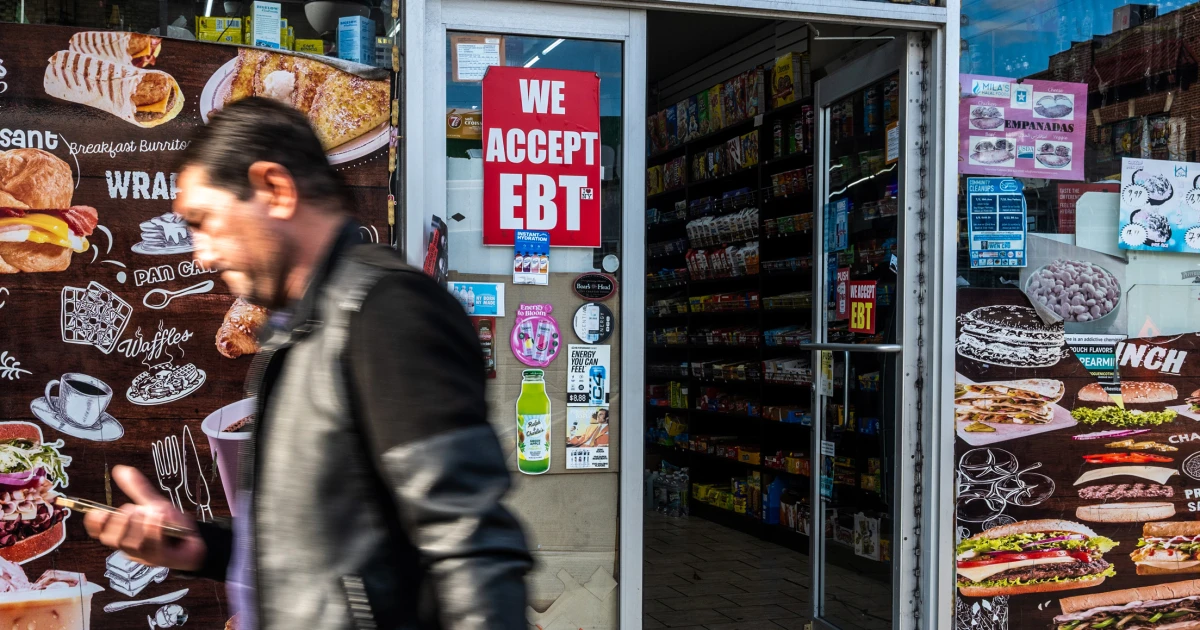Copyright NBC News

After a week of stress-inducing delays, SNAP benefits began to trickle in for some recipients on Friday, with more payments expected to arrive now that the Trump administration has begun to fully fund the program during the government shutdown. “I am feeling a lot less stressed, and I was able to sleep last night for the first time,” said Erica Arneson, a single mother in Tacoma, Washington, whose full benefits arrived Thursday evening around 7 p.m. The tumult surrounding the Supplemental Nutrition Assistance Program, also known as food stamps, began when the Agriculture Department said last month that it would not be able to pay for benefits as long as the government remained shut down. Then, in response to a lawsuit challenging that plan, the USDA agreed to provide partial funds for November. But on Thursday, a federal judge ordered the Trump administration to fund SNAP benefits in full. The administration appealed the ruling but told states that it would fully fund the program during that process. On Friday evening, the First Circuit Court of Appeals denied the Trump’s administration’s request for an emergency pause on the judge’s order. The Trump administration subsequently asked the Supreme Court to prevent it from having to fully fund SNAP. Because of these ever-changing developments, some SNAP recipients saw just a portion of the benefits they’d usually get show up in their accounts over the last couple of days. Others, like Arneson, got the full month’s total. Many recipients, however, are still waiting with zero balances. After the judge’s order on Thursday, some states began delivering funds overnight. Wisconsin Gov. Tony Evers quickly moved to make full SNAP benefits available across the state. In Oregon, Gov. Tina Kotek’s office similarly said the state health department “worked through the night to issue full November benefits by Friday morning.” SNAP recipients in Oregon should see their electronic benefits cards reloaded on Friday regardless of their usual payment schedule, the office said in a press release. Pennsylvania Gov. Josh Shapiro said at a press conference on Friday that all SNAP recipients whose payments were delayed this week should see their cards reloaded by midnight. He added that the state’s health department began immediately processing payments on Thursday after the federal judge’s order. “If you’re one of those people that had a zero on your SNAP card because you were supposed to get your benefits on the first of the month, go check it out. Those dollars are flowing,” Shapiro said. In Louisiana, electronic benefits cards started to be reloaded with partial payments on Friday. Gia Haley, who lives in New Orleans, said she received $193 on Friday morning — 65% of her usual allocation (the portion the Trump administration had said it would fund before the judge’s Thursday order). Until the money arrived, Haley had been trying to subsist largely on black coffee. Almost as soon as the benefits were loaded onto her card, she went to the grocery store to purchase fruits, vegetables, frozen chicken breast, cereal, rice and milk. “That should last me at least two to three weeks, I would think — I hope. I’m going to try to make it stretch as long as I can,” she said. Haley is unsure whether she should expect the remaining $105 that’s missing from her usual monthly allocation, so she’s rationing what she was given. Nevada similarly issued partial SNAP benefits to eligible households on Wednesday, and Illinois said it would start distributing partial benefits on Friday. Alaska’s state health department said SNAP recipients can expect to start receiving their partial payments this week, and the remainder of their benefits next week. Kim Goldsby, a SNAP recipient who lives in Washington, said she was surprised on Friday morning to find $224 — her full monthly allocation — loaded onto her electronic benefits card. Goldsby’s benefits had been delayed since Monday, when they would ordinarily have renewed. At age 66, she is disabled and in remission from endometrial cancer, so she relies on SNAP to purchase fresh vegetables, pork and chicken. Because of the recent SNAP chaos, she still worries about whether the money that’s now in her account will remain there. “Tomorrow it may be gone. Who knows? That’s something I have a little angst about — not just for myself, but for others,” she said. The Washington State Department of Social and Health Services, which oversees SNAP in the state, did not respond to a request for comment.



